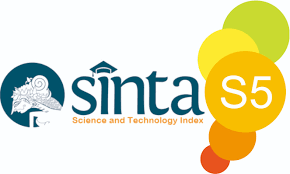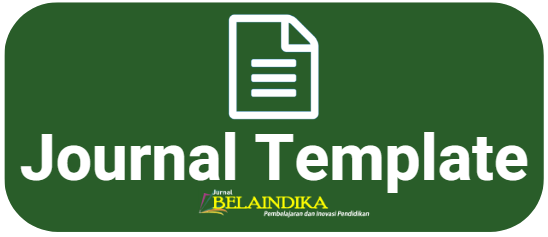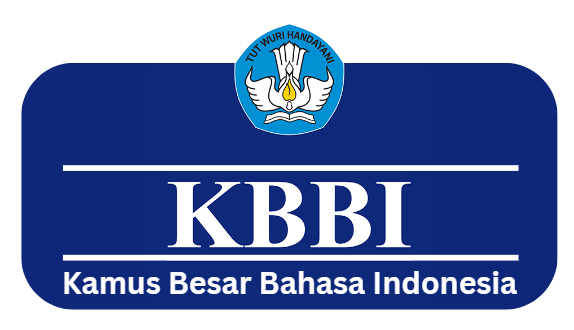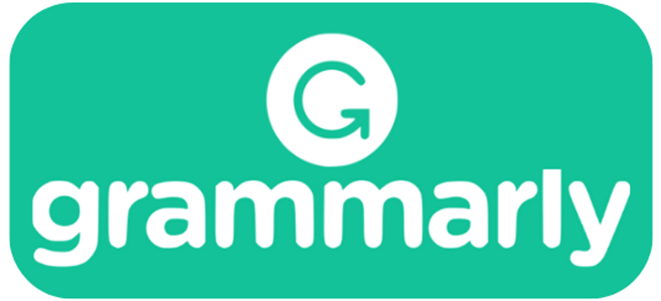Conceptions of Classroom Management in Education
Abstract
Education aims to form quality human resources. So in the process of providing education, an institution must not only focus on providing adequate physical facilities and routines, but it must also fulfill the students' inner needs by preparing professional educational staff so that they can create a good learning atmosphere. fun in class and has a special skill called classroom management. This research aims to describe the concept of classroom management in education. The method used is qualitative with a literature study approach model, then concluded descriptively. The research results show that classroom management is a learning approach technique carried out by teachers to students according to the way they interpret classroom management itself. In general, it must be based on the principles of enthusiasm, warmth, variety, more emphasis on positive things, full of challenges, and instilling a spirit of discipline and flexibility. Meanwhile, the implementation of the classroom management conception in education includes class planning, class organization, class leadership in the sense of implementation, and finally class control in the sense of controlling and evaluating.
References
R. Wahyudin, Manajemen Pendidikan Teori dan praktek dalam penyelenggaraan system Pendidikan. Yogyakarta: CV Budi Utama, 2018.
S. Minarti, Manajemen Sekolah: Mengelola Lembaga Pendidikan secara Mandiri. Yogyakarta: Ar-Ruzz Media, 2012.
A. Nurhuda en A. V. Prananingrum, “Empowerment of Children in Dawung, Matesih, Karanganyar Village Through Educational Classes in the Time of Covid-19”, J. Educ. Anal., vol 1, no 1, bll 61–70, 2022.
T. D. A. P. U. P. Indonesia, Manajemen Pendidikan. Bandung: Alfabeta, 2012.
S. B. Djamarah, Strategi Belajar Mengajar. Jakarta: PT Rineka Cipta, 2010.
Mulyasa, Manajemen Berbasis Sekolah. Bandung: Remaja Rosdakarya, 2012.
Sugiyono, Metode Penelitian Kuantitatif, Kualitatif dan R & D. Bandung: ALFABETA, 2016.
M. Murjazin, A. Nurhuda, en T. Aziz, “Community Social Education in the Perspective of the Hadith of the Prophet Muhammad SAW”, IJECA (International J. Educ. Curric. Appl., vol 6, no 2, bll 161–170, 2023, doi: https://doi.org/10.31764/ijeca.v6i2.16418.
Kompri, Manajemen Pendidikan 1. Bandung: Alfabeta, 2015.
Y. L. Amrona, A. Nurhuda, A. Assajad, A. A. Putri, en A. Anastasia, “Manajemen Peserta Didik sebagai Sarana dalam Mencapai Keberhasilan Tujuan Pendidikan”, J. BELAINDIKA (Pembelajaran dan Inov. Pendidikan), vol 5, no 3, bll 93–103, 2023, doi: https://doi.org/10.52005/belaindika.v5i3.124.
E. Karwati en D. J. Priansa, Manajemen Kelas. Bandung: Alfabeta, 2015.
M. Yamin en Maisa, Manajemen Pembelajaran Kelas. Jakarta: Gaung Persada Press, 2009.
A. Nurhuda, M. Al Fajri, en T. E. S. bin E. Ab, “The Concept of Facilities and Infrastructure Management in Schools: A Literature Review”, IJECA (International J. Educ. Curric. Appl., vol 6, no 3, bll 248–260, 2023, doi: https://doi.org/10.31764/ijeca.v6i3.19655.
A. Nurhuda en N. A. Setyaningtyas, “Implementasi Pembelajaran Ilmu Hadist di MAN 1 Boyolali saat Pandemi”, J. Nusant. Mengabdi, vol 1, no 2, bll 63–76, 2022.
F. Oviyanti, Pengelolaan Pengajaran, Cet Ke-2. Palembang: Rafa Press, 2009.
Sulistiyorini, Manajemen Pendidikan Islam. Surabaya: El-kaf, 2006.
A. Majid, Strategi Pembelajaran. Bandung: PT. Remaja Rosda Karya, 2013.
I. G. K. A. Sunu, Manajemen Kelas. Yogyakarta: Media Akademi, 2015.
S. Rusydie, Prinsip-prinsip Manajemen Kelas. Yogyakarta: Diva Press, 2011.
I. Komsiyah, Belajar dan Pembelajaran. Yogyakarta: Teras, 2012.
J. E. Ormrod, Psikologi Pendidikan. Jakarta: Erlangga, 2009.
S. B. Djamarah, Guru Dan Anak Didik Dalam Intreraksi Edukatif. Jakarta: Rineka Cipta, 2000.
Baharuddin, Teori Belajar dan Pembelajaran. Yogyakarta: Ar-Ruzz Media, 2010.
A. Rolfe, J. Franz, en A. Bridge, “The combined impact of school design and procurement on student wellbeing and educational outcomes”, Facilities, vol 40, no 7, 2022, [Online]. Available at: https://www.emerald.com/insight/content/doi/10.1108/F-08-2021-0071/full/html
Rusman, Belajar dan Pembelajaran Berorientasi Standar Proses Pendidikan. Jakarta: Kencana, 2017.
J. Shaturaev, “2045: Path to nation’s golden age (Indonesia Policies and Management of Education)”, Sci. Educ., vol 2, no 12, bll 866–875, 2021, [Online]. Available at: https://www.researchgate.net/profile/Jakhongir-Shaturaev/publication/357556479_2045_Path_to_nation’s_golden_age_Indonesia_Policies_and_Management_of_Education/links/61d42556b6b5667157c615c3/2045-Path-to-nations-golden-age-Indonesia-Policies-and-Management
B. Fidler, “Strategic Management for School Development : Leading Your School’s Improvement Strategy”, Strateg. Manag. Sch. Dev., bll 1–84, 2002, [Online]. Available at: https://www.torrossa.com/en/resources/an/4913190
I. Fahmi en H. Ali, “Determination of Career Planning and Decision Making: Analysis of Communication Skills, Motivation and Experience (Literature Review Human Resource Management)”, Dinasti Int. J. Manag. Sci., vol 3, no 5, bll 823–835, 2022, doi: https://doi.org/10.31933/dijms.v3i5.1222.
F. Ismail, Evaluasi Pendidikan. Palembang: Tunas Gemilang Press, 2014.
L. Idrus, “Evaluasi dalam proses pembelajaran”, Adaara J. Manaj. Pendidik. Islam, vol 9, no 2, bll 920–935, 2019, doi: https://www.jurnal.iain-bone.ac.id/index.php/adara/article/viewFile/427/352.
Copyright (c) 2024 Jurnal BELAINDIKA (Pembelajaran dan Inovasi Pendidikan)

This work is licensed under a Creative Commons Attribution-ShareAlike 4.0 International License.

_page-0001_-_Copy11.jpg)






